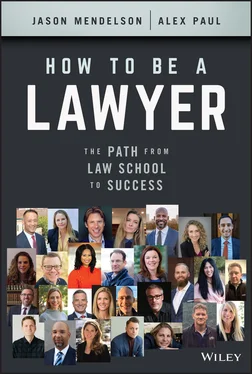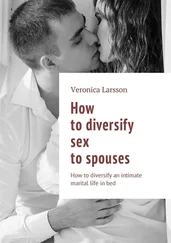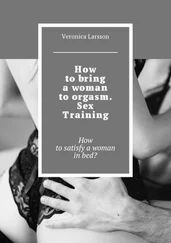Alex Paul, the other lead author, has worked in law and business for over 20 years, covering a range of legal specialties from litigation, intellectual property, corporate and securities law, nonprofit law, tax, and estate planning. In business, both as corporate counsel and an entrepreneur, Alex has supervised leading attorneys in all those specialties as well as others such as water law, real estate, and banking law. Alex has seen a trap that too many smart and sophisticated lawyers fall into: myopia. That is, attorneys suffer personally and professionally by being siloed early on because they specialize in one area of the law and one type of client shortly after law school. Because of that, they unfortunately view every problem through the lens of their specialty and become limited in their ability to do broader yet necessary things like serve as a true fiduciary, run their law firm successfully, or simply be happy and thoughtful people. Given that law schools don't teach the subject “after law school,” this book is an attempt to solve this problem. Alex doesn't want to see the next generation of lawyers make the same mistakes as others in the past.
To be clear—this book is not intended to be a book about law school bashing. Law schools aren't bad. Rather, they are archaic institutions still believing that a student goes to law school, takes the classic curriculum, and a job magically appears at the end of the scholastic journey. Or maybe if your circumstances are a bit more challenging, you can use the school's career placement center's assistance. Perhaps this was truer 30 years ago, but these days only a small handful of law students win this lottery.
Given the changing nature of job discovery for law students, it is even more important they “hit the ground running” when they do find that right opportunity. Yes, there will be a plethora of statutes, regulations, tactics, strategies, client management, and other important concepts to learn, but stepping into a new career completely blind is a recipe to, at best, frustrate your employer and clients and to, at worst, be shown the door quickly.
To add to the problem, the stakes for post-graduation success have never been higher. Every year, about 35,000 people graduate from U.S. law schools. On average, these individuals have racked up close to $150,000 in debt for this privilege. Across the country, only about 80% of these people find a job within six months and nearly 10% never find a job as a lawyer. Some estimates say that average yearly turnover is between 15% and 30% and interviews with hiring partners at major law firms say it now takes two to three years on average to properly train people coming out of law school so that they may actually be additive to their firms. More than half of the junior lawyers do not keep their jobs. This attrition and turnover collectively costs firms about $9 billion each year. These statistics are unlike any other professional degree where graduates transition much more easily from school to the real world.
In our research, we found no class, book, webinar, website, or other source of material that specifically or effectively explains how to be successful with a law school degree. And yet, the problem of transition from classroom to practice is huge. This book aims to fix this problem.
We wrote this book with three audiences in mind. Obviously, the largest target audience is people currently in law school. We recommend reading this book as early in your law school career as possible and refreshing your recollection as you narrow down what your intended career path may look like. We also wrote this book, however, with the pre-law student in mind as well. The practice of law has changed greatly over the past few decades. The type of person who succeeds has changed, as well. No longer are grades, knowledge, and tactics enough to get by. We'll say this many times in the book: great lawyers must be people persons. Being a lawyer is service business. To all of you thinking about law school out there: this book will give you great insight into what the practice of law is really about. Lastly, there will be folks who've graduated and stumble upon this book, as well. We've made this book relevant to you, too.
We worked to write this book as simply and efficiently as possible, as well. We are all still scarred from the amount of text we unnecessarily read while in law school. We empathize firsthand and don't want to add to that burden. If we don't have something important to say, we won't make you read it.
The first part of this book lays out our theories of the case. The second part is the pragmatic section where we'll go out on a limb and give you concrete advice in what to do and what not to do. The last part of the book will wrap up and apply what we've discussed to the real world. Along the way we hope to make you more thoughtful and a bit uncomfortable. We believe that what we've put on these pages can start you on the path to becoming a great (and hopefully happy) lawyer.
CHAPTER 1 The Divide Between Law School and Lawyering
There is very little in common between law school and lawyering. Law schools are great at teaching case law and theory, but generally poor in how to apply either to real-world situations, as almost all law school situations involve a courtroom. Courtroom situations are by far the least common situation for most lawyers. Also, law schools teach nothing about how to work with clients outside of a narrowly tailored ethics class, which, while vital, is only a small part of the picture. Mock trials are just that: mock. And for those of us who made the switch from mock to real, we realized very quickly that life outside the four walls of law school is a completely different beast.
Why aren't people skills, psychology, and negotiations mandatory subjects? This isn't computer science. Remember this: lawyers are called “counselors” for a reason. Any good attorney is as much an armchair support system as they are a statute-application machine. Lawyering is a people business. It's about listening, empathizing, synthesizing information, and problem solving. None of these things are taught in law schools to the extent needed once you are a bar-carrying legal eagle.
This isn't to say law schools are useless or bad. In fact, a good law school can teach you a skill set that is incredibly valuable for both legal and nonlegal careers. We assume that this skill set is also highly valuable in illegal professions, but none of us have particular experience there. If you are struggling with the definitions of “legal,” “nonlegal,” and “illegal” then you either haven't gotten to law school yet or you did poorly on the logic games part of the LSAT.
We believe that most law schools hold a unique distinction of teaching three years of valuable academic knowledge with almost zero practical knowledge. We can't think of another professional graduate school that leaves one so practically ill prepared. Think about your friends who go to medical school, obtain a master's in social work, or get an M.B.A. Okay, just kidding about the M.B.A. But otherwise, these friends walk right out of their graduate program into the world and work. Sure, it takes some time to get up to speed. But lawyers? Even in the best-case scenario, partners at law firms claim that it takes two to three years before an associate is truly ready to practice (and in many cases even longer before they're allowed to speak directly with clients). Note, however, that these same partners have no issue charging their clients for your multi-year apprenticeship.
Why is this the case? Simply put, professional graduate schools other than law schools employ teachers and professors who have actual and bona fide real-world experience. Whereas other professional graduate schools celebrate individuals who have succeeded in their real-life professions, most law schools have a bit of underlying loathing to those professors who have street cred. In fact, most of the professors who have real lawyering experience are relegated to lecturers, adjunct, or secondary professorship roles.
Читать дальше












